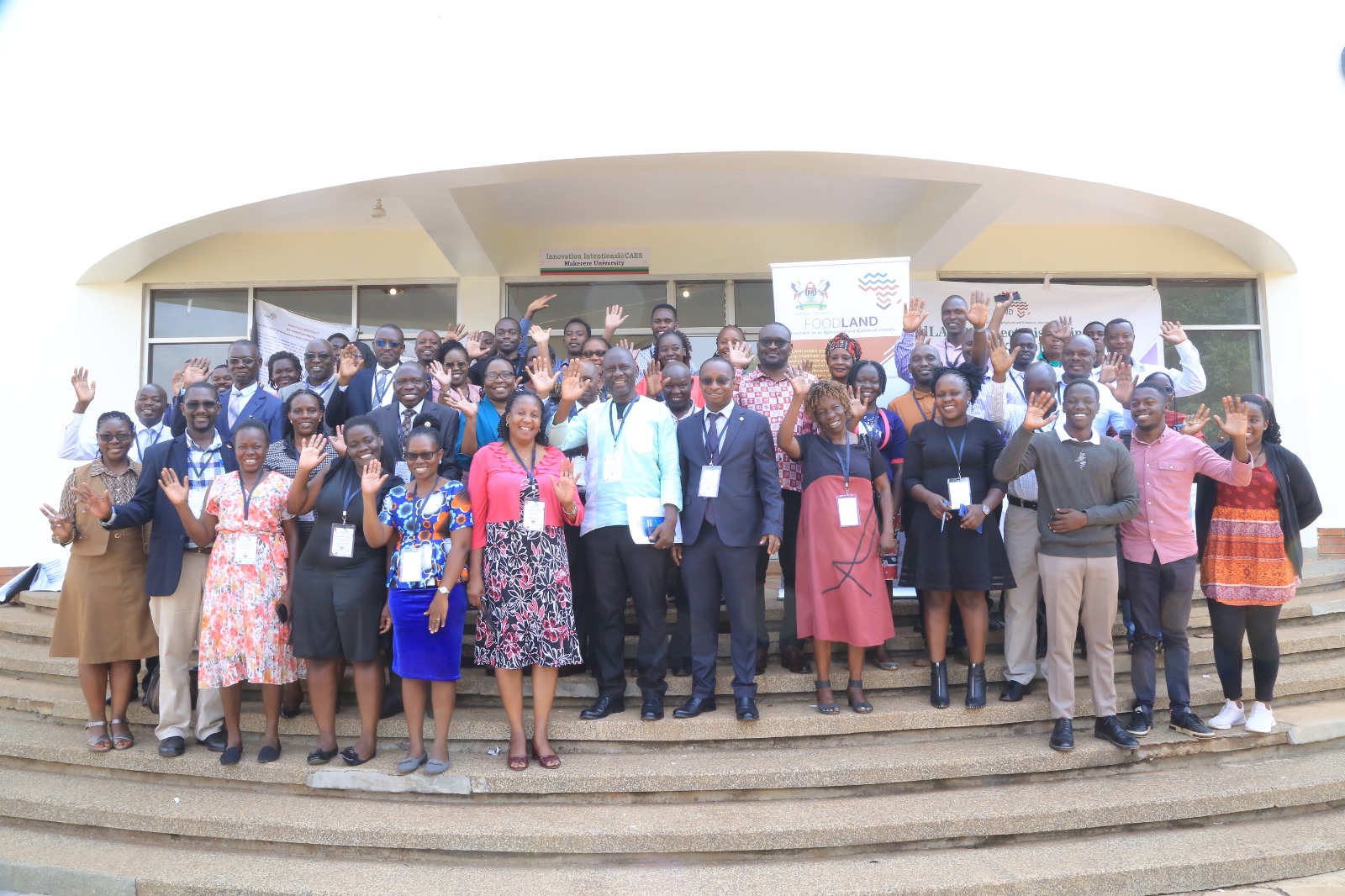
******Funded by the European Commission within the Horizon 2020 programme, the main aim of the project was to develop, implement and validate innovative, scalable, and sustainable technologies to support the nutrition performance of local food systems in Africa. Held at Makerere University, the meeting served as a platform to sensitize stakeholders on the different products developed by the project, including smart farming technologies, nutrient-rich foods, and the nutritional recommendations for adults and the elderly. The meeting featured clinical screening, and the launch of a 30-day healthy diet challenge.
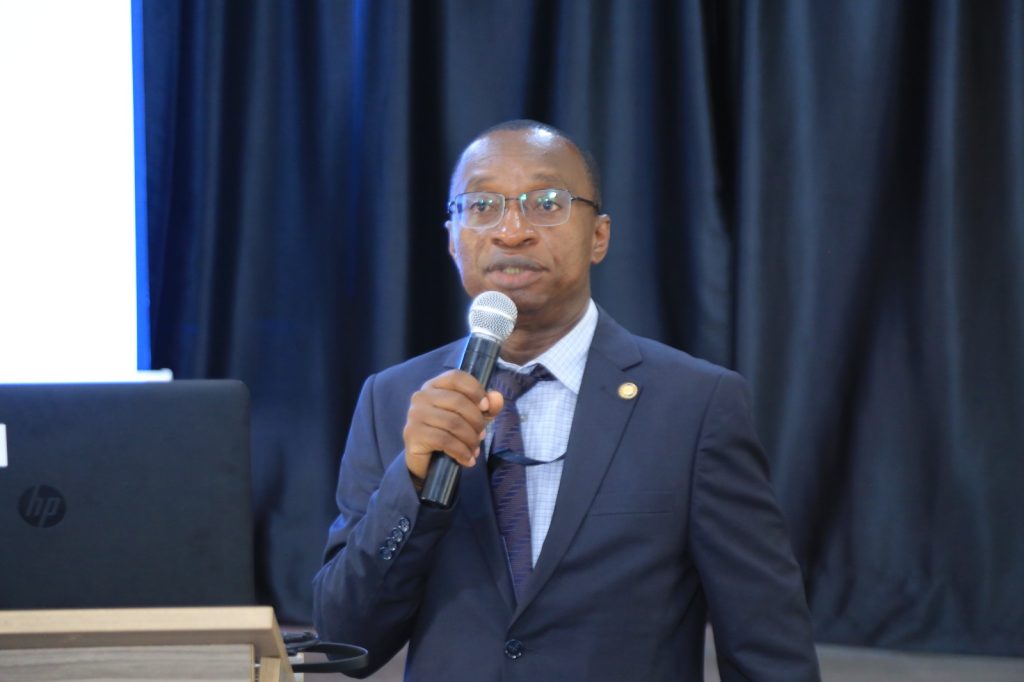
Overview
Africa’s food system is dominated by a number of challenges ranging from primary and seasonal production to poor quality produce, and limited access to markets. In Africa, the use of outdated farming practices and the low adoption rate of improved agricultural technologies have contributed to low productivity. Issues such as monoculture, lack of crop rotation, and poor soil management are still prevalent across the Continent. Poor infrastructure in terms of roads, storage, and processing facilities limits access to markets and increases post-harvest losses. Moreover, many African farmers and other food systems-related businesses lack access to finance and credit facilities that would enable them to invest in improved agricultural technologies and inputs. (John Ulimwengu, FARMINGFIRST 2023).
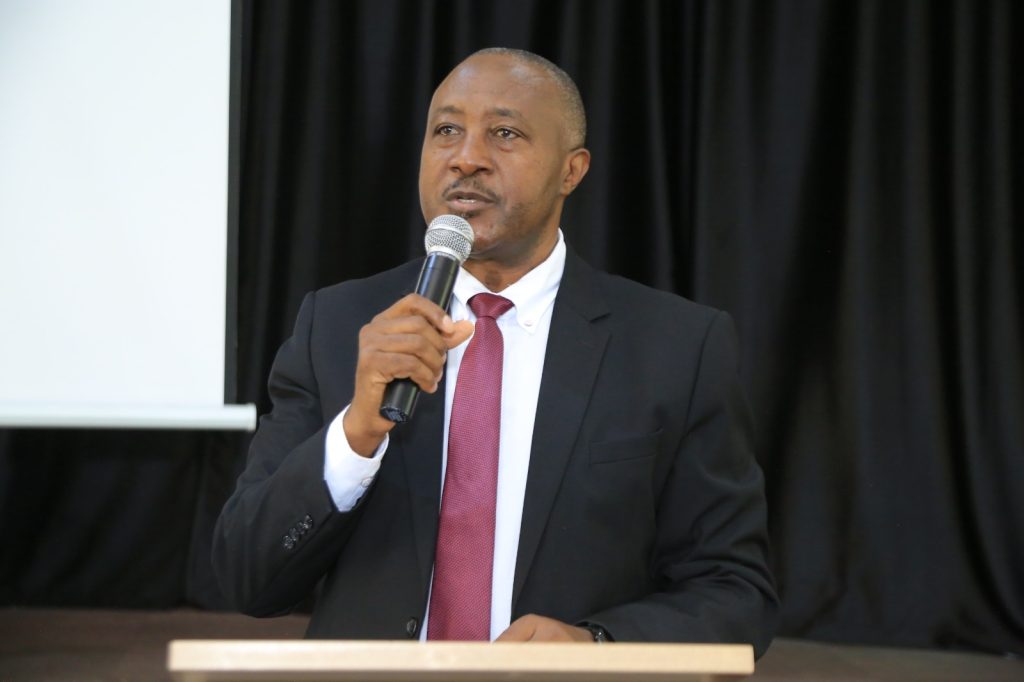
In his presentation delivered at the AU Summit in Addis Ababa in 2023, FAO Director General, Dr. QU Dongyu highlighted the need for collective effort to support vulnerable communities with multiple and innovative solutions to build their resilience and transform agri-food systems to deliver better nutrition. Dr QU Dongyu warned that 1 billion people in Africa could not afford a healthy diet in 2020, and the impacts of the climate crisis, conflicts, the pandemic, and the war in Ukraine were raising levels of malnutrition and hunger. According to a joint report on the State of Food Security and Nutrition in the World, led by FAO, 281 million people in Africa are undernourished, nearly 60 million African children under 5 suffer from stunting, and 14 million suffer from wasting.
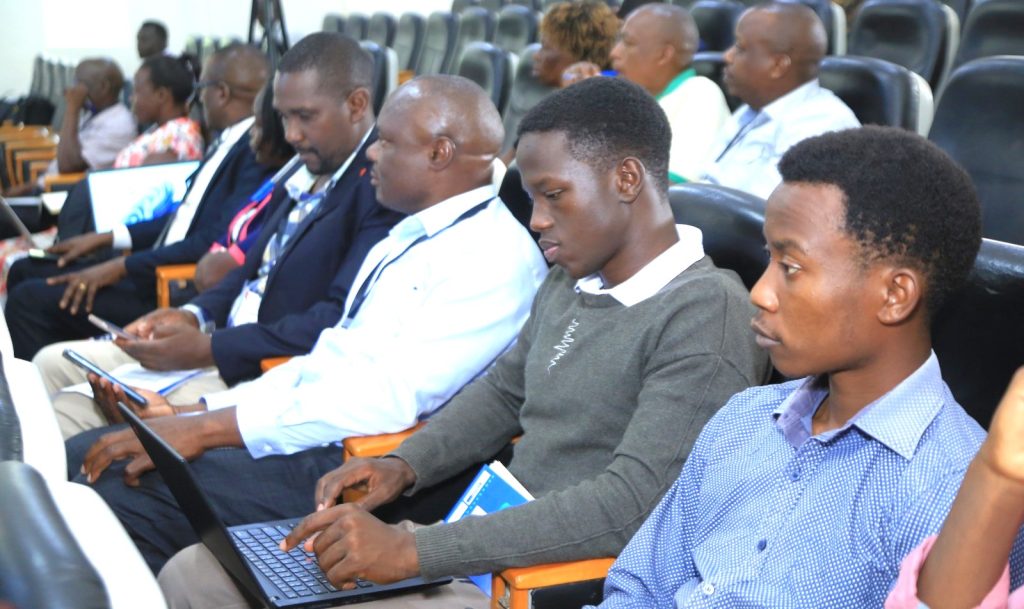
Solutions to Challenges facing Africa’s food system
Launched in 2020 with the aim of developing, implementing and validating innovative, scalable, and sustainable technologies to support the nutrition performance of local food systems in Africa, Food and Local, Agricultural, and Nutritional Diversity (FoodLAND) Ugandan project team has come up with a number of initiatives that have tremendously transformed farming in rural communities in the country. Led by Prof. John Muyonga from the School of Food Technology, Nutrition and Bio-engineering at Makerere University, the team has developed technologies for precision irrigation and fertigation, smart storage, rodent control, and value addition. Additionally, the team has established infrastructure at Makerere University Agricultural Research Institute Kabanyolo (MUARIK) for research and training, and has trained over 100 farmers in the different technologies developed, supported the application of ecological principles to ensure sustainable agricultural production, developed nutrient enhanced food products such as noodles containing orange fleshed sweet potatoes and biofortified beans; instant flours containing orange fleshed sweet potatoes, biofortified beans and grain amaranth; and dry eggplant. The team has also developed nutritional guidelines for adults and the elderly. Uganda’s project team: Prof. John Muyonga and Prof. Johnny Mugisha from the College of Agricultural and Environmental Sciences (CAES), Makerere University; Dr. Cassius Aruho, Dr. Puline Nakyewa, Dr. Margaret Masette, Dr. Getrude Atukunda, and Dr. Justus Rutaisire from NARO; Mr. Henry Nsereko from VEDCO; and Prof. Dorothy Nakimbugwe from Nutreal.
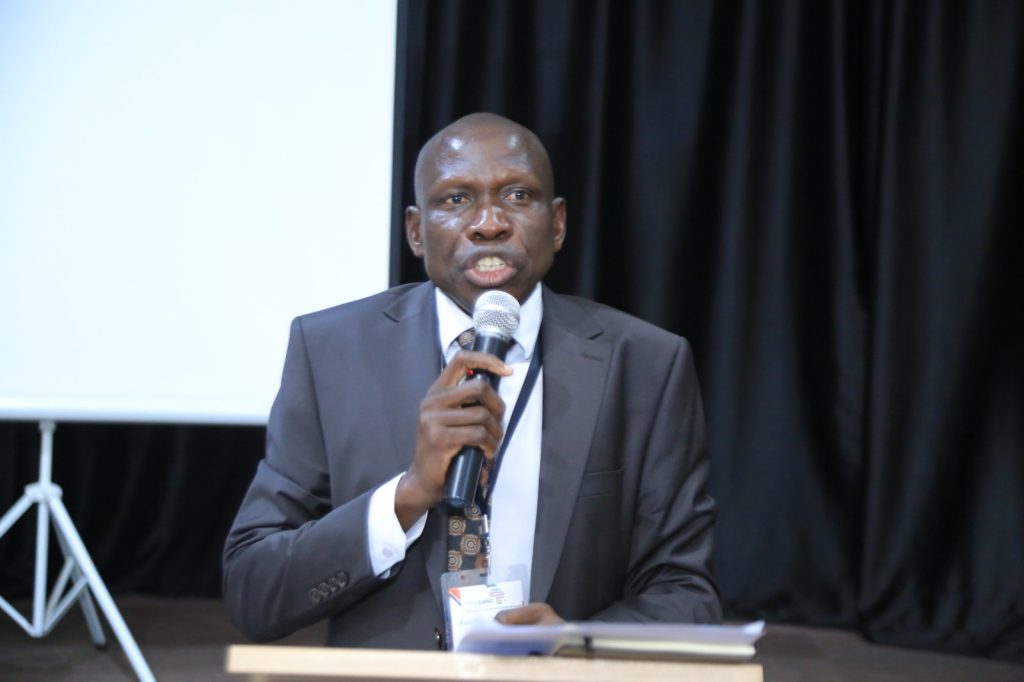
Funded to the tune of 7 million euros by the European Commission within the Horizon 2020 programme, and led by Alma Mater Studiorum – University of Bologna (Italy), FoodLAND project is committed to developing a range of innovations for local agriculture and aquaculture development, as well as to nudging consumers towards healthier eating behaviour in six African countries: Morocco, Tunisia, Ethiopia, Kenya, Uganda and Tanzania. The project specifically aims to empower smallholder farmers and food operators, foster nutrition responsive and sustainable agro-biodiversity, reinforce the productivity and resilience of food supply chains, and create new market opportunities at both the local and global scales, thereby encouraging the flourishing of rural communities. These achievements are envisaged to benefit both African and European consumers by providing them with traditional-based, healthy, nutritious foods, while encouraging the diffusion of African diets and aiding the fight against malnutrition, particularly in women and children.
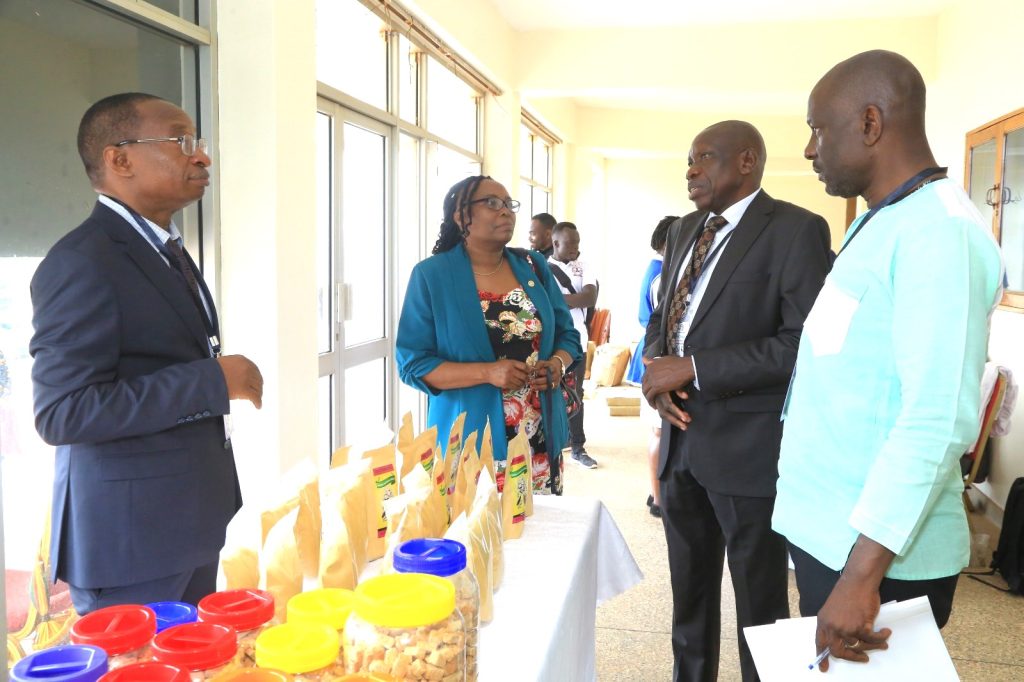
Project dissemination workshops
In July 2024, the team held workshops in the project areas of Kamuli and Nakaseke districts to sensitize farmers on the research recommendations, and train them on the technologies developed to support smart farming.
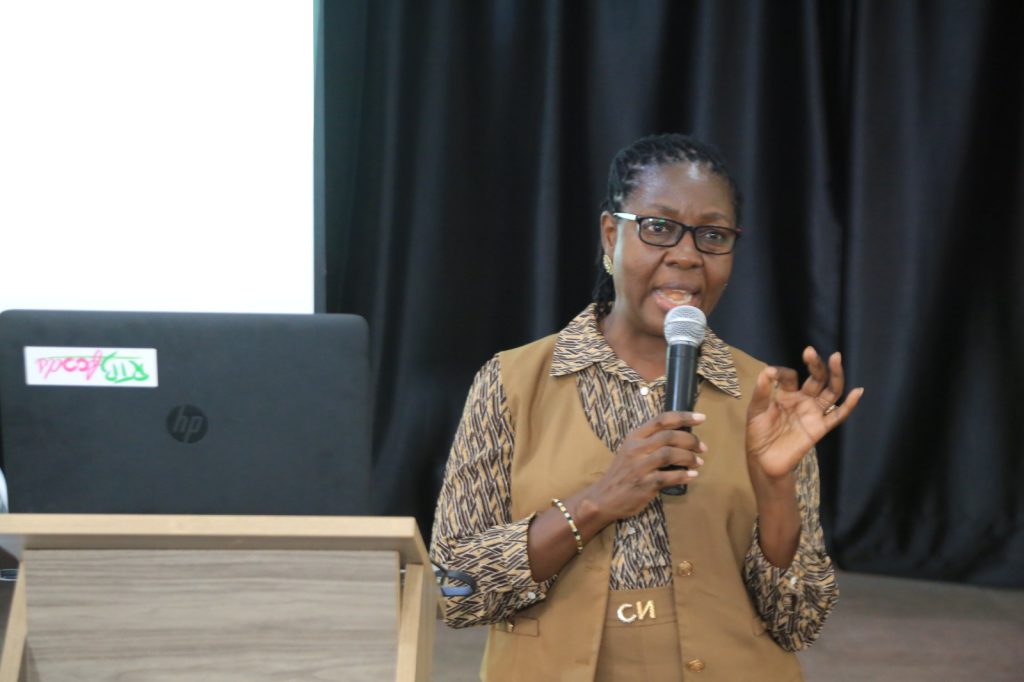
Stakeholders’ engagement/dissemination meeting in Wakiso District
On 29th August 2024, the project team held a dissemination meeting for stakeholders within Wakiso District to sensitize them on the challenges affecting Africa’s food systems, particularly Uganda, and the measures undertaken by the project to address them. Held at Makerere University and attended by staff and students, representatives from the Ministry of Agriculture, Animal Industry and Fisheries (MAAIF) and NARO, and representatives of farmer groups, the meeting discussed a number of issues including the engineering innovations for precision irrigation and fertigation, smart storage (charcoal cooling blankets to prolong shelf-life), and rodent control system developed by the research team. The meeting also discussed producer and consumer behaviours, value addition, integrated aquaculture and bio-based packaging, and nutritional recommendations to minimize under-nutrition, malnutrition, and non-communicable diseases.
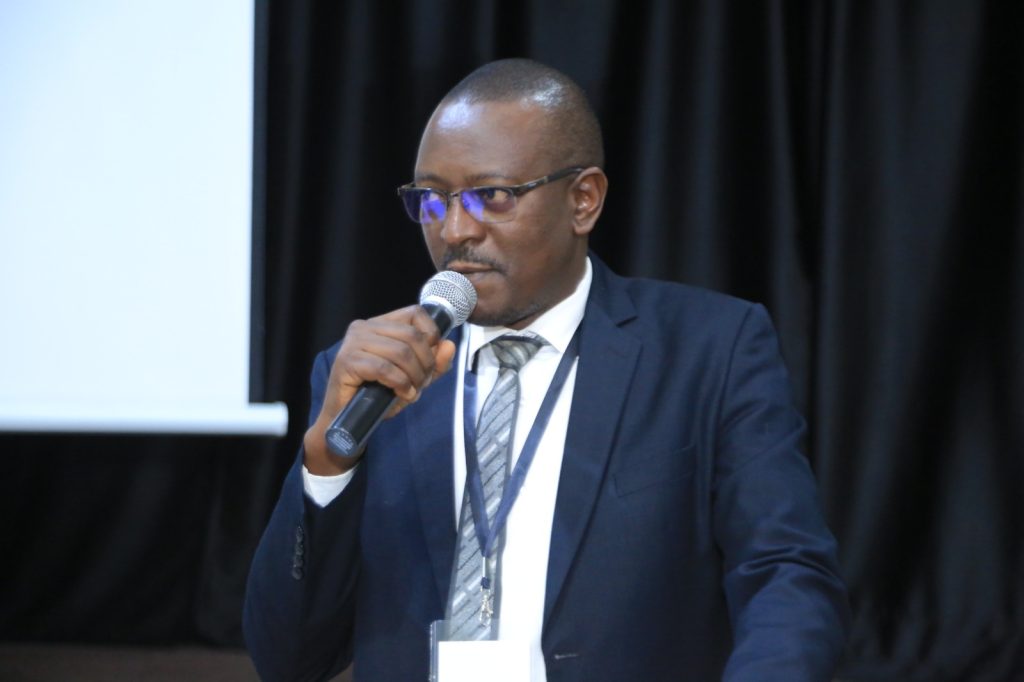
Presentations by the project team
Briefing participants on the project goal and objectives, Prof. John Muyonga, project coordinator in Uganda emphasized the need to address production and nutritional challenges along the entire value chain.
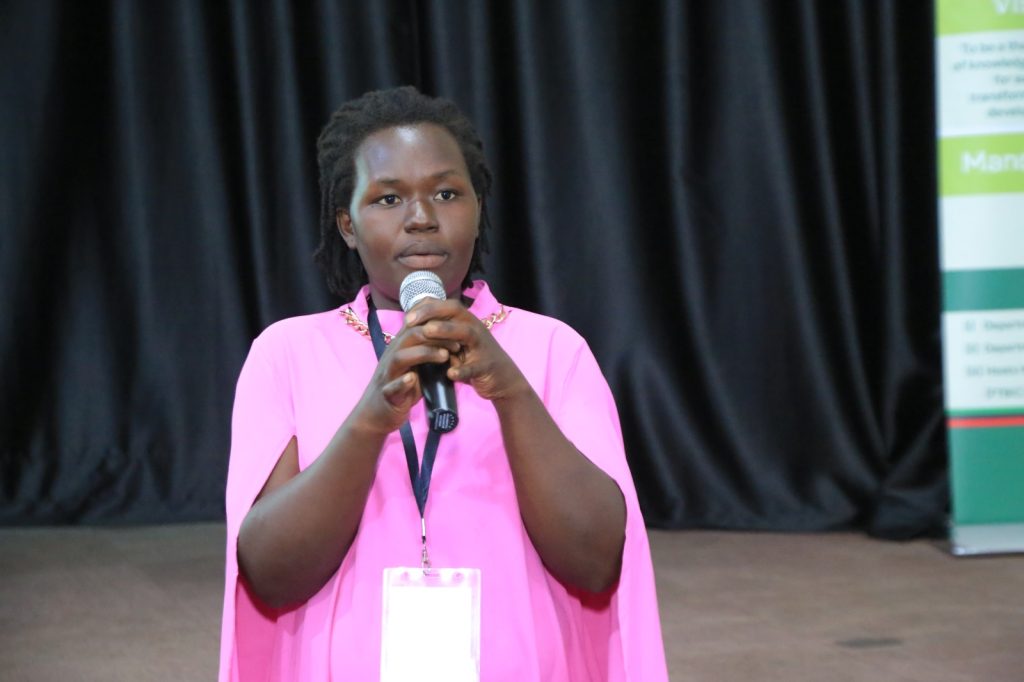
Delivering a presentation on producers and consumers’ behaviour, Prof. Johnny Mugisha noted that fear of risks was undermining uptake of innovations by the farmers. He highlighted the need for incentives to farmers to promote uptake, and called for support initiatives to reduce risks associated with long term investments such as climate change mitigation strategies. Additionally, Prof. Mugisha explained that the price of food or affordability was associated with consumer food choices, advocating for innovative models to distribute quality food to consumers at fair prices. The research also established that diets of rural women were greatly affected by their level of income, calling for initiatives to improve women’s income, and sensitization on good nutrition.
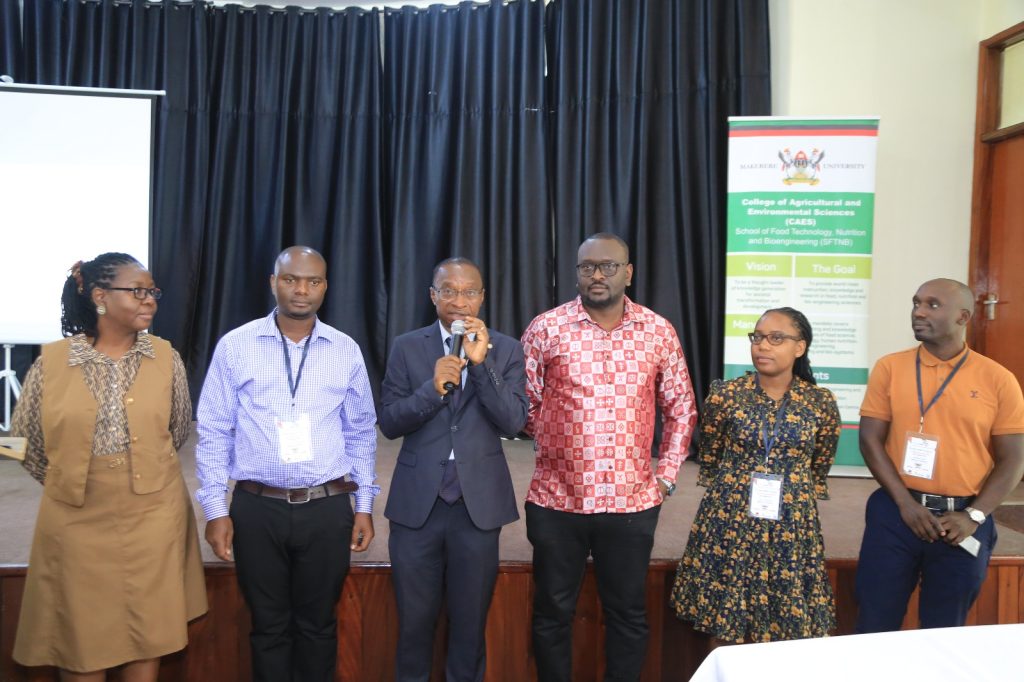
On behalf of Nutreal Ltd that led the value addition component on the project, Dr Dorothy Nakimbugwe, from the Department of Food Technology and Nutrition, College of Agricultural and Environmental Sciences (CAES), Makerere University, presented to participants the different nutrient-rich products developed. These include; orange fleshed sweet potato, bio-fortified beans, noodles, composite flours, and snacks/daddies. According to Dr Nakimbugwe, food processing improves nutrition and health and reduces post-harvest losses. “Consumption of the nutrient-enhanced foods contributes to higher dietary intake of key nutrients (protein and micronutrients e.g. iron and zinc), and can greatly reduce malnutrition. Reports from UNICEF indicate that malnutrition poses a significant barrier to the achievement of the Sustainable Development Goals (SDGs), affecting not only health but also education, economic prosperity, and societal well-being. In sub-Saharan Africa, over 30% of children under the age of five suffer from stunted growth due to chronic malnutrition. Uganda’s adult population also faces a malnutrition burden. In adults, under-nutrition and nutritional deficiencies lead to low productivity, poor health, and poor pregnancy outcomes.
Presenting the nutritional recommendations, Dr Richard Bukenya from the Department of Food Technology and Nutrition at Makerere University indicated that the causes of malnutrition were largely behavioural. According to the Global Nutrition Report of 2022, Uganda has shown limited progress towards achieving the diet-related non-communicable disease (NCD) targets. 10.4% of adult (aged 18 years and over) women and 2.3% of adult men are living with obesity. Uganda’s obesity prevalence is lower than the regional average of 20.8% for women and 9.2% for men. At the same time, diabetes is estimated to affect 5.6% of adult women and 5.6% of adult men. The 2018 Non-Communicable Diseases (NCD) survey by the World Health Organization (WHO), also indicates an increase of diet related health conditions including obesity, diabetes, Cardio Vascular Disease, Coronary Heart Disease, and Cancer with up to 33% of deaths in Uganda related to these non-communicable diseases. The FoodLAND project has worked to supplement efforts by Government to reduce malnutrition. Following desk reviews and stakeholder engagements, the project developed 30 nutritional recommendations for adults and the elderly. These include; i) Daily consumption of locally available fruits and vegetables, whole starchy staples, and protein-rich foods including beans, peas, nuts, fish, eggs, and meat; ii) Limiting the consumption of fried foods, salt, alcohol, and sweetened beverages; iii) Hydrate with fluids, preferably water; iv) Regular engagement in moderate-intensity physical activity like brisk walking, digging, swimming, aerobics, and cycling; v) Undertaking medical examination at intervals of no longer than 6 months to facilitate timely detection and treatment of ailments like diabetes, hypertension, high plasma cholesterol and cancers.
Remarks by the Vice Chancellor
On behalf of the Vice Chancellor of Makerere University, the Deputy Director, Directorate of Research and Graduate Training, Prof. Julius Kikooma commended the project team for the initiative. “The research focus of the FoodLAND project is extremely important, especially for us as a country that is highly reliant on agriculture and yet faced with malnutrition, poor market access from agricultural products and the challenge of climate change. While Africa has potential to grow diversity of food, the continent suffers high levels of under-nutrition, nutritional deficiencies, food poisoning and has in recent decades also registered marked rise in prevalence of over-nutrition and associated non-communicable diseases,” he noted. He commended the project for being in line with the University’s 2020-2030 strategic plan, which seek, among others, to strengthen generation and uptake of knowledge and technologies that contribute to socio-economic transformation of people in Uganda and beyond. He appreciated the European Commission for the support extended to the project.
MAAIF Representative
In his address, Mr. Steven Byantware, MAAIF Director for Crop Resources, who represented the Minister of Agriculture, Animal Industry, and Fisheries (MAAIF) appreciated the project team for supporting government programmes intended to foster agro-industrialization and mechanisation of agriculture with the aim of transforming the country from subsistence to commercial farming. He urged the team to popularise the research findings through extensive dissemination programmes.
Director General – NARO
On behalf of the Director General of NARO, Dr. Sadik Kassim, Deputy Director General commended the partnership between Makerere and the organization. Highlighting the challenges posed by climate change and mechanization of agriculture, Dr. Kassim said the project is crucial in promoting agro-bio-diversity and nutrition bio-diversity. Regarding uptake and sustainability, he urged the project team to work with the government and private sector to strengthen the innovations. He equally appreciated the European Commission for funding the project.
In her remarks, the Dean, School of Food Technology, Nutrition and Bio-engineering, Dr Julia Kigozi commended the project team for the initiative, saying it promotes the CAES innovation-intentional agenda.
The meeting featured testimonies by some of the farmers supported by the project who expressed gratitude, noting that their livelihoods had greatly transformed following the application of the knowledge acquired from the project.
Exhibition, clinical screening, and launch of a 30-day healthy diet challenge
On the side-lines of the dissemination meeting was an exhibition of the different products developed by the project team, and clinical screening as well as launch of a 30-day healthy diet challenge.
More about the project;
